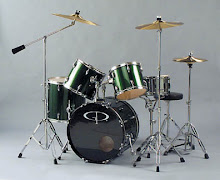Google Page Rank (PR) is a numerical value determined by the importance of the page for Google. Pages are ranked from 0 to 10, where 0 is unknown, and 10 is very important (very few resources, such as Microsof, Google intself and others, have such rank). The higher your rank is, the higher your page is in Google Search results. The exact algorithm of ranking pages is a secret, but there are some major factors influencing it.
The main thing Google crawler relies on while ranking a page is the number and the importance of the inbound links (links to the page from another pages). It's like other pages are voting for you. The higher rank linking page has, the higher it's influence on your page rank. So, if your page rank is 3, to increase it to 4 you need either a bunch of links from 2-3-4 ranked sites, or a couple of links from 7-8 sites.
It's also important that influence of a link depends on the amount of links at the linkking page. So if a page links to you and 3 more pages, it's vote is divided to 4, or it's influence is 4 times lower than it could be if it only linked to your page.
There are some simple mathematical researches on how PR calculated, you can check webworkshop.net, for example. But usually there's no need for counting links and their importance - for a start-up it's better to act, and for resources with high PR it's impossible to count all the linking pages. The case when counting link's influence can be very useful is buying links from other pages.
If you need your page to be ranked high for an exact keyword or phrase, it's better that linking sites will mark you the same way. Like if you'd like to get to the top of Google on "how to cook", you need other pages to link to you as "how to cook" resource.
So, increasing your PR means getting a lot of backlins, that can be done in following ways:
1. Submitting to directories.
2. Writing quality content that will make people link to you.
3. Participating in forums (the link can be added in your signature).
4. Exchanging links.
5. Buying links.
6. Spamming.
Spamming is usually putting links to your page in comments section in blogs or in forums. To avoid spamming a webmaster can add "nofollow" tag to HTML code, so the link will still appear on the site, but won't affect linked page PR.
Spamming is also a way to decrease a page PR. You simply need to put a lot of comments, with links to spam sites and so on, to a page. This is how some of this blog pages went down in Google - i didn't moderate comments for a long period of time, and, as a result, got about 100 comments on some of the posts. I suggest you to enable comment moderation at your blogs and delete spam comments immediately.
There are not only inbound links influencing your PR, some other factors, like age of the page, updating frequency, etc, can be important. There's a couple of nice posts about that at dailyblogtips.com.
You should also remember that PR update (it's when Google checks your page rank for the next time) takes place about once in 3 months, so you better make everything necessary before submitting your page to Google to get high PR instantly.
ajab prem ki ghazab kahani songs
16 years ago

No comments:
Post a Comment